Warming relations between Israel and Saudi Arabia in recent years may seem like a poorly kept secret but a massive reform push by the highly conservative kingdom may blow the lid wide open on those ties.
At the center of the reform is a $500 billion plan led by Saudi Crown Prince Mohammed Bin Salman to build a “smart” business and industrial zone extending from Egypt to Jordan. The project is part of Salman’s 2030 economic vision, a drive to make Saudi Arabia’s economy less dependent on oil and more knowledge and technology based. It coincides with the 32-year-old prince’s highly publicized modernization plans, including the monarch’s recent decree allowing women to drive and a wave of arrests, including of princes and senior officials, as part of a sweeping $100 billion “corruption probe”.
When Salman announced the new project late last month, he omitted any mention of Israel, a technology powerhouse also known as the “Startup Nation”. Israel’s geographical location between Egypt and Jordan, with which it has peace agreements, led to speculation about the country’s potential involvement in the project, even though Saudi Arabia and Israel – both US allies – have no diplomatic ties.
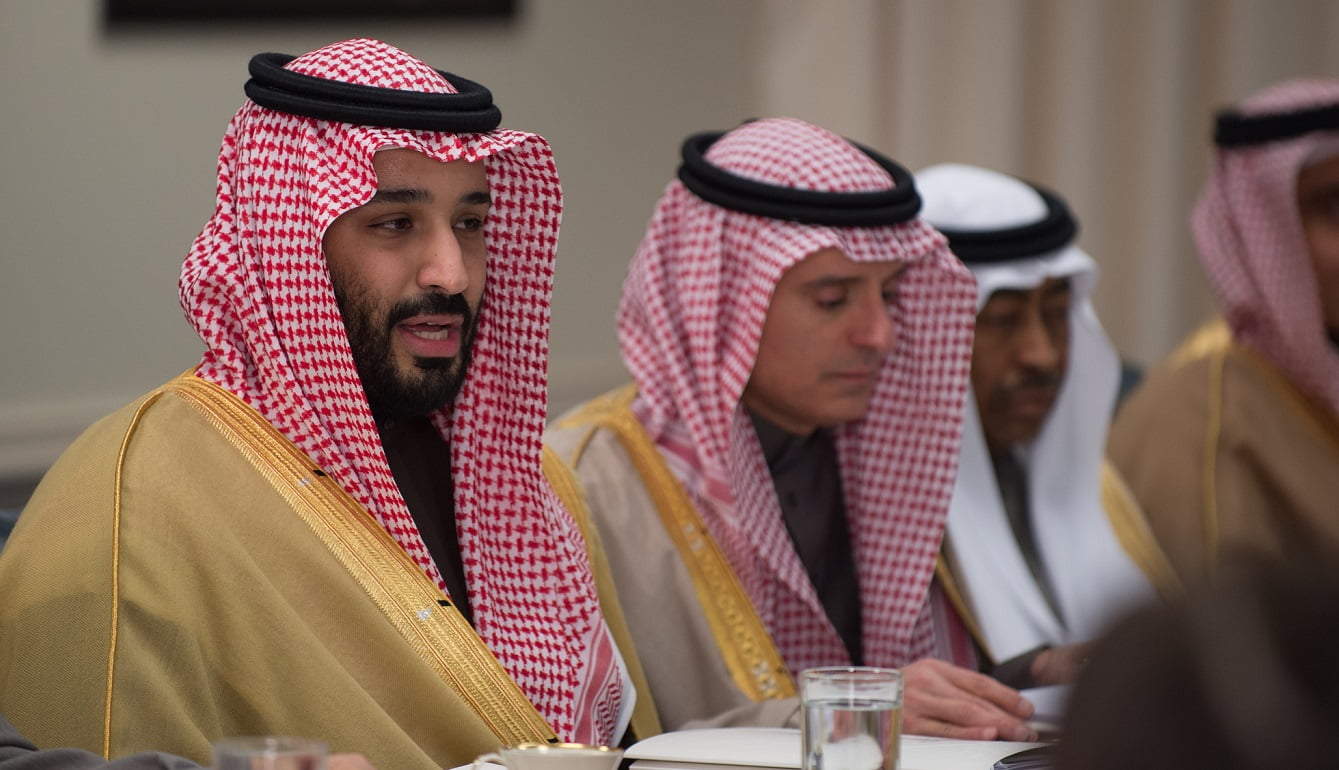
Saudi Crown Prince Mohammed bin Salman Al Saud speaks to US Defense Secretary Jim Mattis in Washington, D.C. on Mar. 16, 2017. Photo by Department of Defense Sgt. Amber I. Smith via Flickr
Despite the lack of official ties, relations between the two countries have improved behind the scenes in recent years, in part due to their shared, fierce opposition to Iran and its quest for regional hegemony and efforts to acquire nuclear weapons.
Both Saudi Arabia and Israel fervently opposed the Iranian nuclear deal signed in 2015 between Tehran and six world powers, the US, the UK, France, Russia, China and Germany, arguing that the accord did not sufficiently rein in Iran’s nuclear program and would actually hasten Tehran’s acquisition of the bomb.
SEE ALSO: Bridges For Peace: Can The Startup Nation Be An Incubator For Palestinian Tech Entrepreneurs?
More recently, Israel notably backed Saudi Arabia’s move earlier this year to boycott Qatar, which it accuses of being a terrorist haven and a backer, alongside Iran, of Palestinian terror group Hamas. Similarly, when Lebanon’s prime minister Saad Hariri — while in Saudi Arabia — resigned unexpectedly earlier this month, citing threats from Iran and its Lebanese proxy Hezbollah, Netanyahu said the resignation should serve as a “wake-up call” to the international community “to take action against the Iranian aggression.” And, according to an Israeli report citing diplomatic cables, Israel instructed its embassies across the world to back Saudi Arabia’s rhetoric against Iran and Hezbollah, prompting talk — mainly in Tehran — of an Israeli-Saudi alliance in the region.
Nowhere was this emerging alliance between the two countries more evident than in an unprecedented interview last week by Israel’s military chief, Gadi Eisenkot, to the London-based, Saudi-owned news outlet Elaph, in which he said that Jerusalem and Riyadh were in “complete agreement” on the need to curb Iranian influence in the region and that Israel was prepared to share intelligence on Tehran with Saudi Arabia.
Saudi Arabia, said Eisenkot, “has never been our enemy,” and Israel and the Gulf kingdom share “mutual interests.”
Israel-Arab ties
Israeli Prime Minister Benjamin Netanyahu has long boasted in recent years of deepening ties between the Jewish state and some of its Sunni Arab neighbors, despite decades of war, animosity and hostility over the creation of the State of Israel in 1948 and the Israeli-Palestinian conflict.
Netanyahu and other Israeli officials have also argued that Arab states, and the international community in general, seek its technological know-how and military prowess, and are willing to develop under-the-radar ties to explore those avenues.
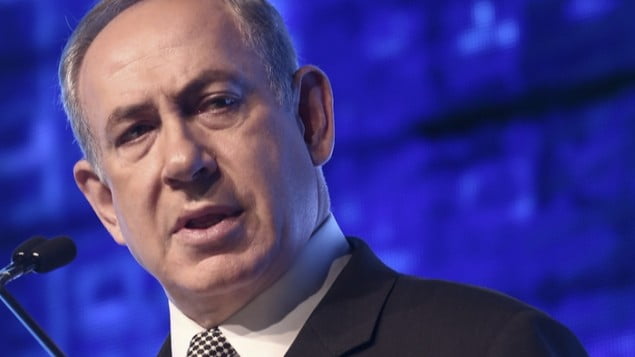
Prime Minister Benjamin Netanyahu at the CyberTech Conference in Tel Aviv in January 2017. Courtesy
Israel has more startups per capita than anywhere else in the world, earning it the “startup nation” moniker. Some Israeli companies, notably cybersecurity firms, have over the years quietly done business with Saudi Arabia and other Gulf states. In 2012, when Saudi’s national oil company Aramco suffered a cyberattack, Israeli cybersecurity companies were recruited to help, while Israeli and Saudi entrepreneurs and businessmen regularly meet at conferences and events in European capitals. In 2015, Israel opened a diplomatic mission in the United Arab Emirates, which neighbors Saudi Arabia.
“Trade and collaboration in technology and intelligence are flourishing between Israel and a host of Arab states, even if the people and companies involved rarely talk about it publicly,” according to the Bloomberg report.
“Israelis from the private sector meet with the Saudis, and others, in Europe all the time, and this happens in various areas. It’s unofficial and you won’t see anyone go on the record with it, but it’s happening,” Sarit Ben-Shabat, a lecturer at the Interdisciplinary Center, Herzliya (IDC) who wrote her PhD dissertation on Saudi Arabia, tells Nocamels.
She says Israel has effectively built an alliance with moderate Arab states, who have come to see Jerusalem as a key partner in their rivalry against Tehran, allowing for non-diplomatic ties to flourish.
Israel in the Saudi ‘Smart City’?
Ben-Shabat said Israel has every interest in being involved in Saudi Arabia’s plan for the “Smart City” right near its border. “We’re talking about a lot of money, big possibilities for the private sector and an unprecedented opportunity to develop the [Israeli] economy as well as enter a market that was officially closed to us until now,” she tells NoCamels.
The planned economic zone, known as NEOM, will stretch across 26,500 square km (10,230 square mile) near Saudi Arabia’s border with Jordan, across from Egypt’s Straits of Tiran which separate the Red Sea and the Gulf of Aqaba, near the southern Israeli city of Eilat. The zone will be a short drive away from the resort city of Aqaba in Jordan and will link Saudi Arabia to Egypt via a proposed King Salman bridge.
Saudi’s NEOM, to be run on renewable energy and manned by robots, is set to focus on a number of industries including smart manufacturing, biotechnology, energy, food development and entertainment and will feature sky-rise office towers and five-star hotels as well as allow freedoms not currently extended to the kingdom, according to the ambitious plan laid out by the prince at an international business conference last month.
“We can do 98 percent of the standards applied in similar cities, but there is two percent we can’t do, like, for example, alcohol,” the prince said.
Salman said he envisions a business hub he described to Bloomberg as a “civilizational leap for humanity,” and which will “have a link with artificial intelligence, with the Internet of Things — everything.”
Rabbi Abraham Cooper of the Simon Weisenthal Center, which has for years been involved in regional cooperation initiatives, says it may not be a coincidence that Saudi Arabia chose an area for its proposed economic zone right near Israel’s borders and which will have advanced technologies that Israel develops.
“The younger generation in the region — in Saudi Arabia, Egypt, Jordan and all these places — they need jobs. They’re looking to business, to technology and any other area where money could be made. And this is where Israel becomes a role model. Thanks to social media, Arabs across the region know about Israel, they read all about Israeli startups,” he says.
Sign up for our free weekly newsletter
SubscribeCooper tells NoCamels he accompanies officials from a number of Arab states to meet with Israeli entrepreneurs and startups and arranges delegations of Israeli businessmen who travel to the Arab world.
“The time is ripe for change, to move forward, young people want to get on with it,” he says.
“The vanguards of change are Israeli businessmen. Israeli entrepreneurs are as important, if not more important than Israeli diplomats,” he adds.
This is a sentiment echoed repeatedly by renown Israeli entrepreneur Dr. Erel Margalit, the founder of the venture capital firm Jerusalem Venture Partners and a former Knesset member for the Labor party who stepped down earlier this year.
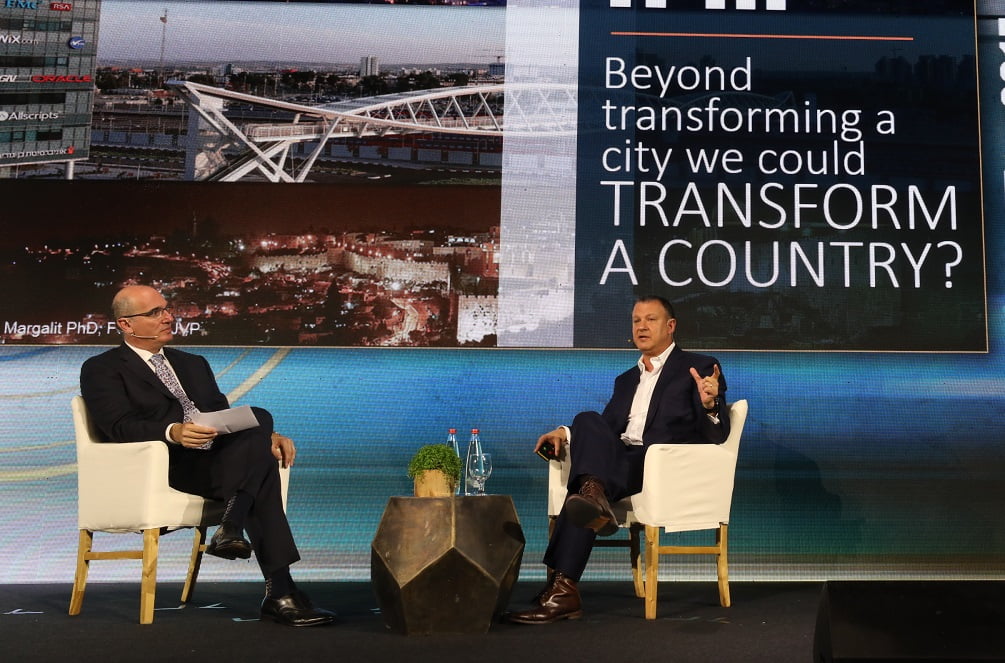
Dr. Erel Margalit (right) at the Journey Israel conference in Tel Aviv in October 2017. Credit Shauli Landner
Margalit recently told i24 News that while it is “not easy” for Israel to freely work with Arab countries, the region is looking for “economic growth,” and regional cooperation can focus on creating jobs for people “through projects like water and agriculture and innovation.”
An unnamed source in the Israeli venture capital world familiar with the Saudi project told the Jerusalem Post recently that whereas the Saudis may not be so willing to formally cooperate with Israel, “when a VC is coming from the private sector, it’s much easier to create all kinds of cooperation on water, energy, ag[riculture]-tech, foodtech. This is the stuff that the prince of Saudi Arabia wants to promote in the ‘Smart City.’”
SEE ALSO: Israeli Designer Bridges Cultural Gaps With Stunning New Script Combining Arabic And Hebrew
Where politicians posture and dawdle, industry can step in to move things forward, Margalit said at the Journey Israel conference in Tel Aviv in October, proposing a future project that would link up 10 cities across the Middle East and North Africa and suggesting an Israeli role in Saudi’s planned economic zone through an airport to be set up near the “smart city” to serve Jordan, Israel, Saudi Arabia and Egypt for business development,
If Israeli innovation “can change the country, it can change the region,” he said.
Wishful thinking?
But despite the shared interests, public relations between Israel and Saudi Arabia would be a more delicate matter — even as the two countries were said earlier this year to be negotiating the establishment of economic ties, including allowing Israel’s national carrier El Al to fly over Saudi airspace and allowing Israeli companies to operate in the Gulf.
Saudi officials denied the report, carried in the British magazine The Times, indicating it was no more than wishful thinking by the administration of US President Donald Trump, which has launched a new push for regional peace talks with Saudi Arabia playing a key role.
Since Trump’s election last year, Riyadh has repeatedly indicated that it would back US efforts for peace, with Saudi Foreign Minister Adel al-Jubeir saying in February that he believed “progress can be made in the Arab-Israel conflict…if there is just the political will to do so,” and indicating that Saudi Arabia “stands ready with other Arab countries to work to see how we can promote that.” Riyadh is after all the author of the Arab Peace Initiative, first proposed in 2002, that offers Israel full ties with Arab nations in exchange for peace with the Palestinians in the form of the two-state solution.
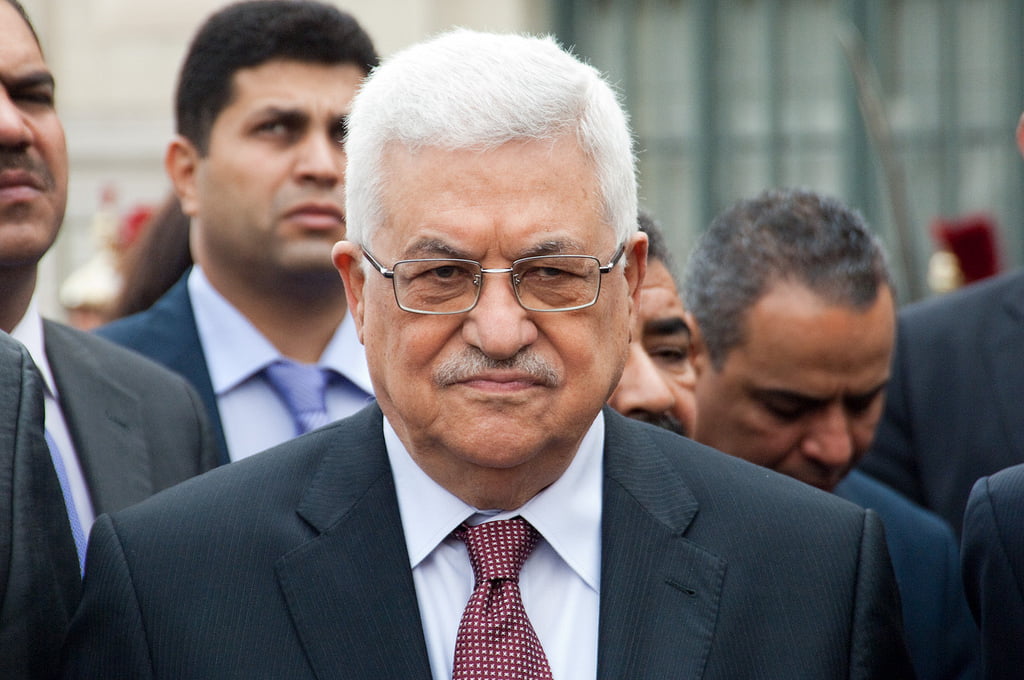
Palestinian Authority President Mahmoud Abbas. Photo by Olivier PacteauCC via Flickr
Riyadh for its part appears to be taking its role in any peace push seriously, reportedly giving Palestinian Authority President Mahmoud Abbas an ultimatum to either accept a US-backed peace proposal or resign, according to a Times of Israel report this week citing Israel’s Channel 10.
But barring a peace agreement, Saudi Arabia is unlikely to publicly embrace Israel. A former senior adviser to Netanyahu, Yaakov Amidror, who met former Saudi intelligence chief Prince Turki al-Feisal in a rare such occurrence earlier this year, said the prince told him said that once Israel reaches a peace deal with the Palestinians, Israel and Saudi Arabia “can change the Middle East. There is nothing that can stop the combination of Israeli mind and the Saudi money.”
“The Israeli-Palestinian conflict has to be part of the equation,” says Ben-Shabat of the IDC. For Saudi to go public with its ties to Israel, she tells NoCamels, there has to be some movement on the peace process, “at the very least [diplomatic] negotiations.”
Cooper, of the Weisenthal Center, disagrees, viewing Saudi’s drive for reform and economic development in the “smart city” as a “game changer.”
The Israeli-Palestinian conflict used to be a deal-breaker for Saudi Arabia and other countries, he tells NoCamels, but “no more, Tehran changed it all.”
NEOM will be “situated on one of the world’s most prominent economic arteries … Its strategic location will also facilitate the zone’s rapid emergence as a global hub that connects Asia, Europe and Africa,” the Public Investment Fund (PIF), Saudi Arabia’s main sovereign wealth fund, said in a statement.
“This place is not for conventional people or conventional companies, this will be a place for the dreamers of the world,” Salman has said.
Israel may just be that dreamer.
Related posts

Editors’ & Readers’ Choice: 10 Favorite NoCamels Articles

Forward Facing: What Does The Future Hold For Israeli High-Tech?

Impact Innovation: Israeli Startups That Could Shape Our Future


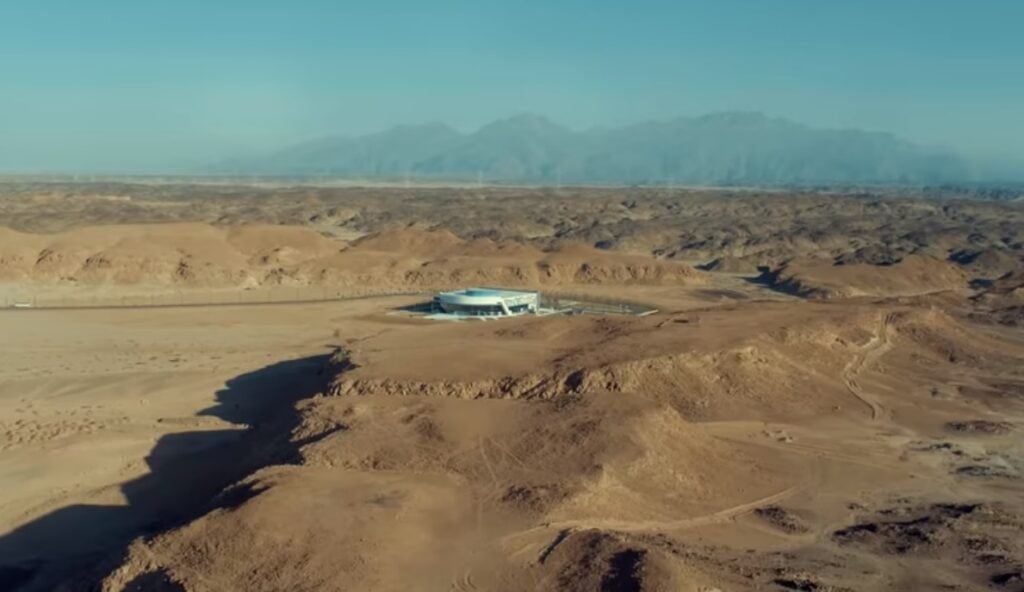

Facebook comments